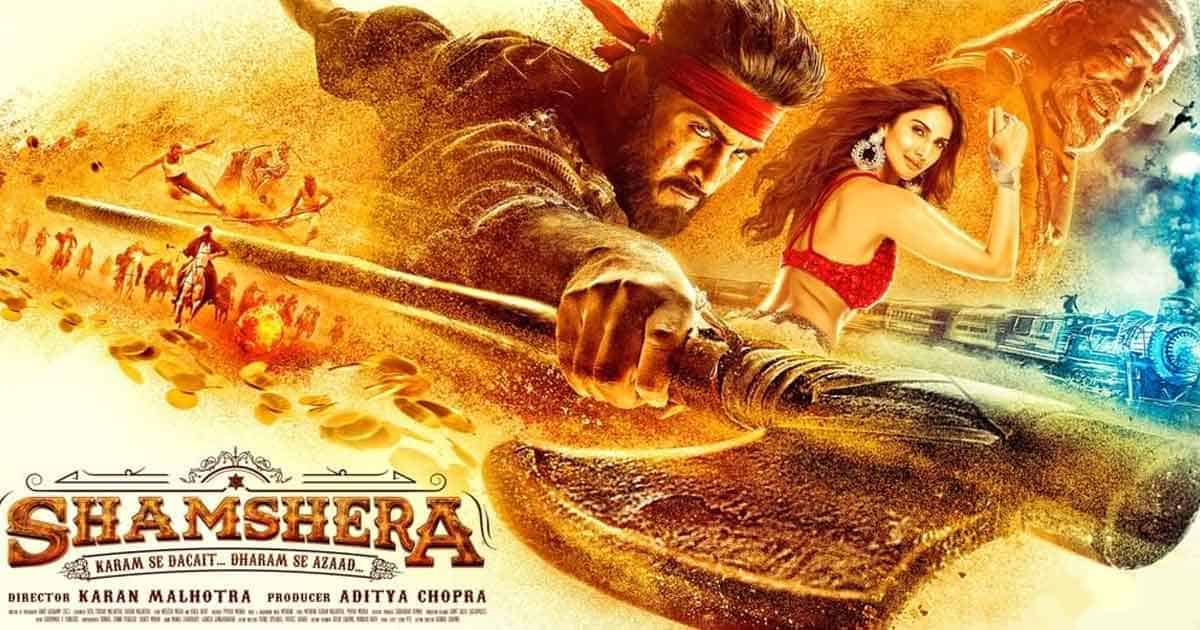Shamshera
I dare you to take a drink every time someone says "Shamshera"

The son of a once legendary, but now dead and disgraced, bandit king and revolutionary, Balli must fight to free his people from their life of bondage beneath the cruel boot heel of a ruthless General.
An action-adventure film that is set in India during the time of the British Raj, Shamshera is a Robin Hood meets Braveheart kind of tale—with way more song and dance, but sadly, too little Bryan Adams—about legacy, revenge, redemption, and also death to collaborators.
Shamshera follows the story of a bandit army of Khameran tribesman, who are fighting for their freedom by robbing the rich merchant class favored by the British oppressors. Shamshera is the king of the bandits. He is a masked mountain of a man, his black hair flowing in the wind, riding at the head of his tribesman, with a massive axe on his back. Unfortunately, the merchants’ complaints bring out the British army in all their red coat finery, and those guys bring lots of guns with them. As the fight drags on, and hoping to save his people from being wiped out, Shamshera agrees to surrender and to move the Khameran tribe to protected lands, where they will be allowed to live in peace.
Too late, he realizes that he was lied to, as he and his people are imprisoned in an isolated fortress in a rocky desert.
In an attempt to escape, in order to raise enough money to buy his people’s freedom, Shamshera is caught, and branded a traitor by the evil General in charge of their jail. The General then lies to Shamshera’s people about his motivations to escape, and in their anger, the Khameran people stone Shamshera to death.
Twenty-five years later, Shamshera’s ne-er-do-well son, Balli, a thief and a layabout and a collabortor, as well as the spitting image of his father (because they’re played by the same guy), learns the real truth of his father’s intentions. Using his father’s plan to escape, and with the help of his father’s old allies, he picks up his father’s axe, and sets about completing his father’s goal of freeing his people from their bonds.
He’s not really what you’d call “his own man.”
Called the Masked Dacoit, and heralded by a fierce wind, and a storm of crows, Balli strikes at weddings and celebrations, stealing their gold, while his super hot girlfriend distracts everyone with her super hot belly-dancing. Balli’s efforts ultimately lead to a revolution, and the redemption of his father’s tarnished legacy. Again, all with lots of singing and dancing.
So much singing and dancing.
While a good helping of song and dance is always to be expected in a Bollywood film, this film felt more like a series of loosely connected music videos than it did a movie.
Cards on the table? It all very quickly becomes tedious.
After awhile, the only real difference between some of these music videos was whether it featured actual dancing, or fight-dancing, or sex-dancing, with some of the sex-dancing happening underwater.
Very sexy. Very wet.
On top of that, every single moment in this film is slavishly devoted to swaggering ego. It’s like a comedy skit mocking an actor with an overly-inflated sense of self-worth who demands that evey scene, every moment, every angle is only there to make him look his most awesome, no matter what… but it goes on for two and a half hours, the first hour of which is just prologue. So, yeah, it’s fair to say that there’s a few pacing issues. It’s also fair to say that the script is obviously nothing but a short synopsis padded by an excessive amount of slow motion, which ultimately means… it’s also a little long.
Actually it’s really long.
And not good.
Not good.
